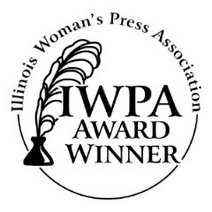I was fascinated by "Prima Donnas Need Not Apply" by Angela Hoy of WritersWeekly ("the highest-circulation freelance writing ezine in the world") and publisher Booklocker. In her article in the December 6 issue, Angela wrote of a would-be novelist, an attorney and former English teacher, who submitted a book proposal to Booklocker and reacted very argrily to Hoy's rejection of it. The "Prima Donna," according to Angela, was "very angry and quite stunned that someone of her prestige had been rejected." She bragged about her education and her accomplishments.
The problem? writing errors, including many misspelled words. Angela wrote, "We can't publish books with errors. That is clearly stated in our submission guidelines, and that is why I didn't accept your book. I'm shocked by your angry response. I could have just taken your money, accepted your book and put it on the market, embarrassing us both, but I don't do business that way."
My reaction was that the would-be author got just what she deserved, and the episode made me think about writing correctness and editing. They matter to Angela Hoy and they matter to me, but do they matter to enough people? I was one of several inspired to respond, and my letter to the editor was published in WritersWeekly on December 13. Here it is:
Angela:
I chuckled when I read "Prima Donnas Need Not Apply." Your reaction was great! I fear that English teachers, both high school and college, are partially responsible–and I say this as a retired college English professor.
A pendulum seems to swing between "all" or "nothing" in educational theory. Years ago, we emphasized correctness far more than creativity. This emphasis "turned off" a lot of students in the large group who tell me they hated their English classes. Then the pendulum swung too far the other way: just express yourself. Be creative. Don’t worry about correctness. Of course the original idea was to create first and edit later, but since editing was the harder part for many students and teachers alike, many were happy to give it up.
I’m out of the teaching profession now, but my reading indicates that we have helped to create a generation of would-be writers who just don’t know or care. Their writing has received high praise for imagination and creativity despite misspelled words and convoluted sentence structure. I insulted an acquaintance when I dared to tell her that her self-published book was full of serious writing errors. She didn’t seem to believe me, and told me that she’d had an editor!
The answer is obviously the middle course: create and then edit–or find a good editor. I hope that publishers and readers will sort the good from the bad, but I’m not sure that enough people really care, or even recognize writing errors when they see them. I’m glad you reacted as you did. It’s a battle worth fighting.
To quote Angela Hoy's conclusion: "The lesson to be learned here is that everybody makes mistakes, even attorneys and English teachers, and being able to admit your mistakes and correct them, rather than attacking the critic, is an honorable trait." I hope we English teachers have not inadvertently created a generation that thinks otherwise.
Copyright 2006 by Marlys Marshall Styne
Subscribe to:
Post Comments (Atom)


















No comments:
Post a Comment